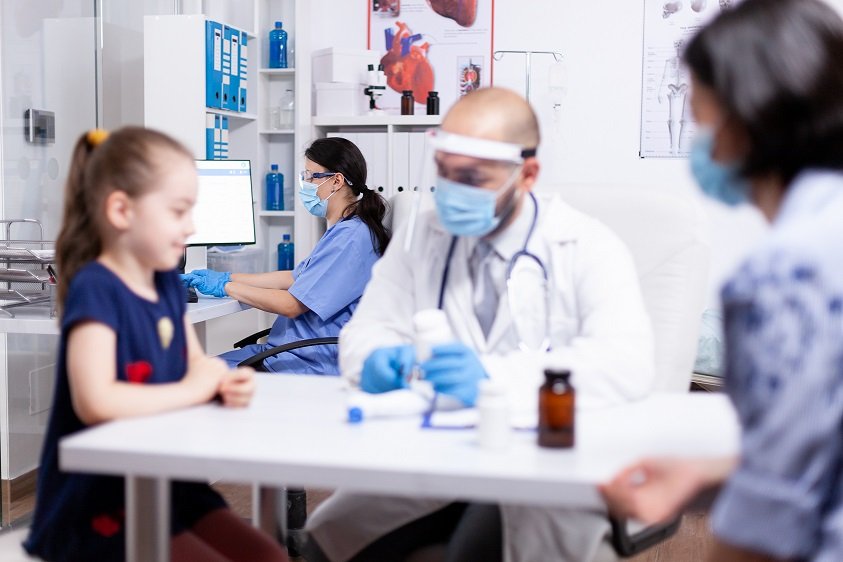What Do RNs do?: Specializations, Roles, and Work Environment
Have you ever wondered about the iconic duo, the hero and the sidekick, and how one can’t function without the other? This is the case with doctors and nurses. They are both professional and educated in their respective fields; given that they are both medical, they almost always work together.
You may have some basic information about what nurses do, but you might not have known that there are different types of them. In this article, we are going to talk about one type: Registered Nurses.
What is an RN nurse?
So what is an RN (Registered nurse)? RNs are considered the foundation of the US healthcare system as they provide hands-on care in various medical settings. They encompass a wide range of duties while working directly with patients, doctors, and other healthcare professionals.
The main difference between an RN and other nurses (e.g., LPN - licensed practical nurse) is that an LPN assists doctors and other RNs. In contrast, registered nurses assess and provide healthcare directly to the patients. Now that you have a basic idea of what an RN is let’s talk about the process of becoming one.
How to become a registered nurse?
Becoming a registered nurse, as with every profession, does come with its difficulties. Aside from the three years of University, students who apply to nurse schools are expected to have a high GPA in natural sciences. However, like everything you have to put extra hard work in, the results are rewarding.
Interested in pursuing an RN degree in California?
Fill out the form and get all the detailed information you need regarding your chosen program.
Education
Obtaining a nursing degree comes in three forms, Associate’s, Bachelor’s, and a diploma. Depending on how long you want your studies to take or what nursing skills you want to focus on, you can choose either one of them or even complete more than one.
An Associate’s degree in nursing or ADN is an undergraduate degree for RNs, and it is a 2-year program. Nurses who choose to complete this program can then take their career to the next level and obtain a Bachelor of Science in Nursing or BSN. The main difference between an ADN and BSN, besides the length of the program, is that an Associate’s degree focuses on teaching nurses clinical skills such as physical examination, pulse and blood pressure assessment, blood transfusion, etc.
A Bachelor of Science in Nursing is an undergraduate degree for Registered Nurses. This degree is the most required in hospitals. It mainly focuses on teaching nurses clinical skills such as patient care technology, health and safety within the US healthcare system, research, etc., and leadership skills. This program is three years, and nurses who complete it get advancement opportunities in hospitals.
A diploma in nursing is a 3-year program that teaches students the fundamentals of nursing. The program focuses on the study of treating patients and saving their lives. Some of the skills an RN gains in this program are administering medication to patients and performing different injections. A diploma in nursing is the fastest way to become an RN as it allows you to put to practice everything you learn in theory as you learn it.
License
After attending a nursing program, you must complete the NCLEX-RN exam, a pass-fail exam to evaluate your obtained knowledge and determine whether or not you’re ready to practice nursing in your country. The NCLEX-RN exam is issued by the NCSBN (National Council of State Boards of Nursing). The exam is divided into 4 categories:
Health promotion and maintenance
The safe and effective care environment
Psychosocial integrity
Physiological integrity
After the exam, each US state’s board of nursing might ask for other qualifications from you, such as doing a criminal background check.
What Does a Registered Nurse Do?
A registered nurse is responsible for providing patients with the healthcare they need as well as educating them and their families on safety and health. All while communicating in a teamwork manner with other medical professionals such as doctors and other RNs.
Job responsibilities of an RN
Job responsibilities of a Registered Nurse are more overloaded than one might think; their only duty is not assisting doctors. Here are some of the essential tasks an RN gets to do regularly:
Assisting and communicating with patients
Monitoring patients’ health
Recording patients’ medical history
Monitoring patients’ recovery progress
Educating patients and family members on health conditions
Collecting DNA samples for lab work
Working in a team with other nurses and doctors to assure more effective results
Assisting with diagnostic tests and providing results
RN specialties
The tasks mentioned above are more general responsibilities of a registered nurse, but there are divisions in what an RN is specialized in. Let’s take a look at what you’d be looking forward to if you chose this path.
Emergency room (ER) nurse
An ER nurse needs to be very alert at all times; accidents happen, and when patients get sent to the emergency room, ER nurses need to be one of the first respondents.
Some of the responsibilities of an ER are: stabilizing patients, giving stitches and tending to different wounds (e.g., broken bones), administering medications, assigning the degree of urgency for incoming patients, etc.
Intensive care unit (ICU) nurse
An ICU nurse needs to be very keen and make quick decisions when dealing with patients with life-threatening conditions. Their job is to record and monitor the patient’s health, track any changes, and administer medication through injection or gastric tubes.
Aside from this, they need to report any patient’s health updates to the doctors, other nurses, and family members.
Medical-surgical nurse
Medical-surgical nurses have to prepare patients for operations and assist through the whole process to the doctor and anesthetist. They even have to be quick to take over if and when complications happen during the procedure.
After the surgery, their job is to administer medication and teach the patients and their family members about the next steps of recovery from the surgery. Much like surgery procedures, these nurses need to be clear and concise.
Pediatric nurse
Pediatric nurses’ tasks are almost the same as those mentioned above, except they work with children. While the hard skills are essential here, such as administering medication and monitoring their progress, pediatric nurses need to have impeccable soft skills.
Good communication skills, empathy, and building a bond with the patients are just some of the skills a pediatric nurse is required to have.
Registered Nurse Work Environment
Any place that is required to provide on-site healthcare, you can find RNs in. The place where most registered nurses work are hospitals, but there are a lot of other institutions where RNs choose to work for different reasons.
Hospitals
A hospital is the most common and popular place you can find an RN in. Since the hospital is almost always crowded, they have a lot more work than some of the other work environments. Getting called for assistance more often may lead to extended working hours, almost half of which is voluntary, which means to be an RN, you need to be dedicated to the job and helping people.
Clinics
Unlike hospitals, a clinic is a place where an RN assists one patient at a time. So in terms of the overload of work, this can be considered slightly easier than working in a hospital. Their duties include being part of low-risk procedures and administering medication and injections as prescribed by the doctor.
Nursing care facility
RNs in Nursing care facilities have similar responsibilities to RNs in hospitals, such as drawing blood, basic health monitoring, giving injections, and taking vital signs. In addition, RNs have supervisory roles in nursing homes.
Home healthcare service
Home healthcare services are places where an RN tends to a patient after discharge from the hospital or a private clinic. Working in a home healthcare service can be quite independent for RNs, and you get to be more flexible with your time and be in charge of the healthcare for patients.
To work in a home healthcare service, you need to have excellent communication skills as you’ll be dealing with the patient and their family members a lot.
Outpatient clinic
An outpatient clinic is an institution where patients are not required to make appointments to seek medical attention. The RN’s responsibilities are quite similar to the other healthcare settings, such as assisting with minor surgeries, recording patients’ health history, administering medication, etc.
Given that the outpatient clinic is very flexible with the appointments, an RN is expected to be very vigilant for incoming patients.
School
RNs in schools are the first and only respondents to injured or ill students. They are there to take care of students' physical and mental health and provide them with first-aid care when needed. It is also the RN responsibility to decide if the student's family should be contacted and other emergency units in more extreme cases.
Key Takeaway
Becoming a registered nurse will take a lot of hard work and dedication. Since RNs spend more time with the patients than any other medical professional, your behavior needs to be approachable. You need to have excellent communication, listening, and team-working skills. Whatever field of nursing you choose, hopefully, this article enlightened you about a registered nurse's complex and fulfilling responsibilities.



